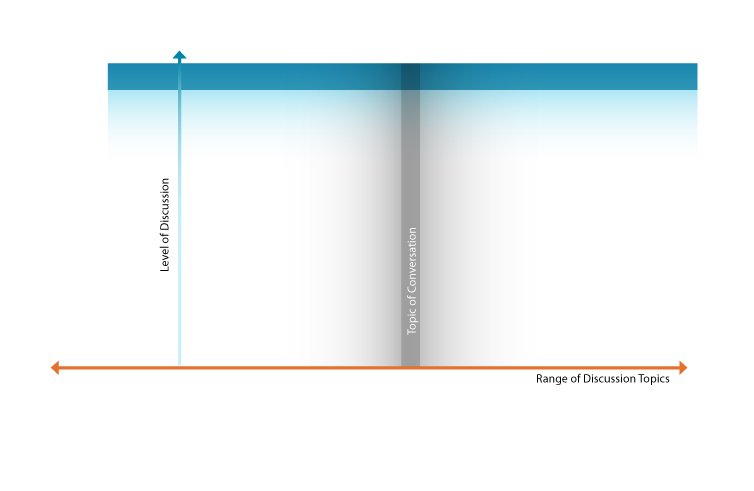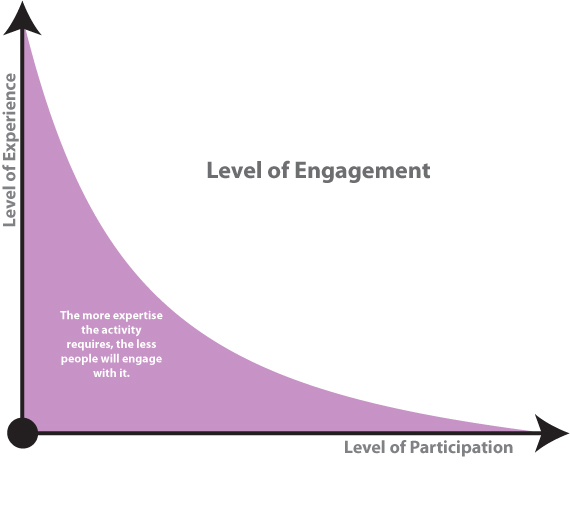
How does one design a remarkable product? “Well, it depends on a product,” some would say. But couldn’t we say something general? Why do we feel passionate about some products but not others? Consider conversations: some are fun, some are boring; some engage lots of people, some not so much; some result is heated exchanges, some are more neutral. Note that you can be very passionate about a topic, but don’t consider it fun: rape, genocide. Politics engages lots of people, but the details leave most bored. Some conversations generate sustained interest, and some fizzle out without a remark. What’s required for a conversation to be remarkable? That depends on the audience. To be engaged in a discussion, you have to find the topic interesting to you. And what’s interesting to you, might not be to me. Thus the topic of conversation is a variable of the targeted audience. Even if you find the topic amusing, you might not have the time to participate in the conversation. “I would love to talk to you about quantum space time, but the plane leaves in 5 minutes.” And it is so noisy on the plane that you can only hear every other…

